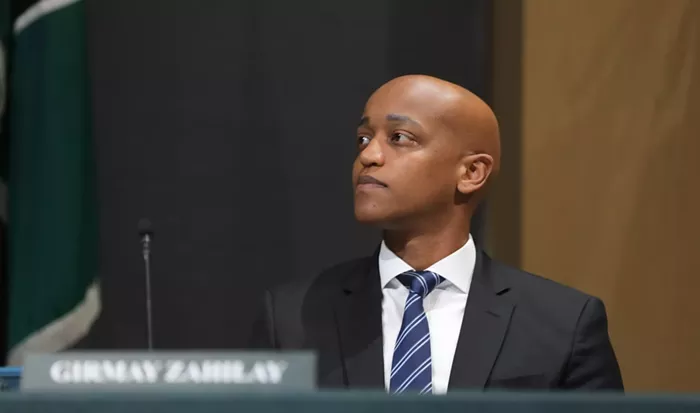In King County, we know that safety doesn’t start with policing—it starts with housing, healthcare, and honoring the leadership of those most impacted by systemic injustice. That’s why my organization Lavender Rights Project, a Black trans feminist organization serving the our community in housing and criminal justice, partnered with Health Through Housing to open the first permanent supportive housing facility in Washington designed by and for LGBTQ+ people, which focused on serving our primary community: Black queer and trans people.
When our supportive housing facility, the Sharyn Grayson House, opens in Capitol Hill this year, it will offer programming, healthcare navigation, and most importantly, an inclusive and caring home for 32 community members who have experienced or are at risk of homelessness. Councilmember Girmay Zahilay was one of the first public officials to stand with us, not just in word, but in action that made this supportive housing a reality.
Our supportive housing initiative didn’t happen in a vacuum. It was the result of decades of organizing by BIPOC community leaders, who demanded divestment from carceral systems and real investments in community care. The funding for the Sharyn Grayson House came directly from that advocacy to redirect resources from jails into community housing.
Zahilay listened. He didn’t just sign on after the hard work was done; he advocated for us from the very beginning. Zahilay worked closely with the Department of Community and Human Services to incorporate these funds into the new Health Through Housing levy and housing programs. While he worked to secure funding and support for this housing, he never treated the Lavender Rights Project like a token or afterthought. He treated us like a partner.
It’s just one example of Zahilay’s leadership style. He has consistently co-designed solutions with the very communities impacted by injustice across the county, from launching a Youth Achievement Center as a refuge for housing-unstable young people impacted by the criminal legal system, to securing historic investments in Skyway to build a community-led resource center as a community intervention to criminalization and violence. His approach is rooted in trust, shared power, and long-term commitment.
In a moment when trans people, especially Black trans people, are under attack across the country, this project is a blueprint for how local governments can step up. The need for local government support for our community is not about politics; it’s about survival. It’s about joy. It’s about giving people the chance to rest, to heal, and to live.
We’re proud of what we’ve built together. We’re proud of this partnership. And we hope King County continues on a path where the people most harmed by systemic violence receive public investment.
Zahilay followed community, prioritized justice, and acted with urgency and humility. We need every politician to act this way.
Jaelynn Scott, M.Div., is a noted racial and gender justice advocate known for her passionate commitment to gender and racial equity, as well as her leadership in LGBT faith communities. She is the executive director of Lavender Rights Project, a Black trans feminist organization working for housing and criminal justice.




